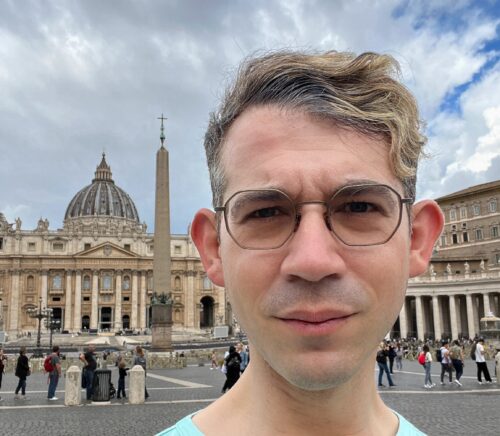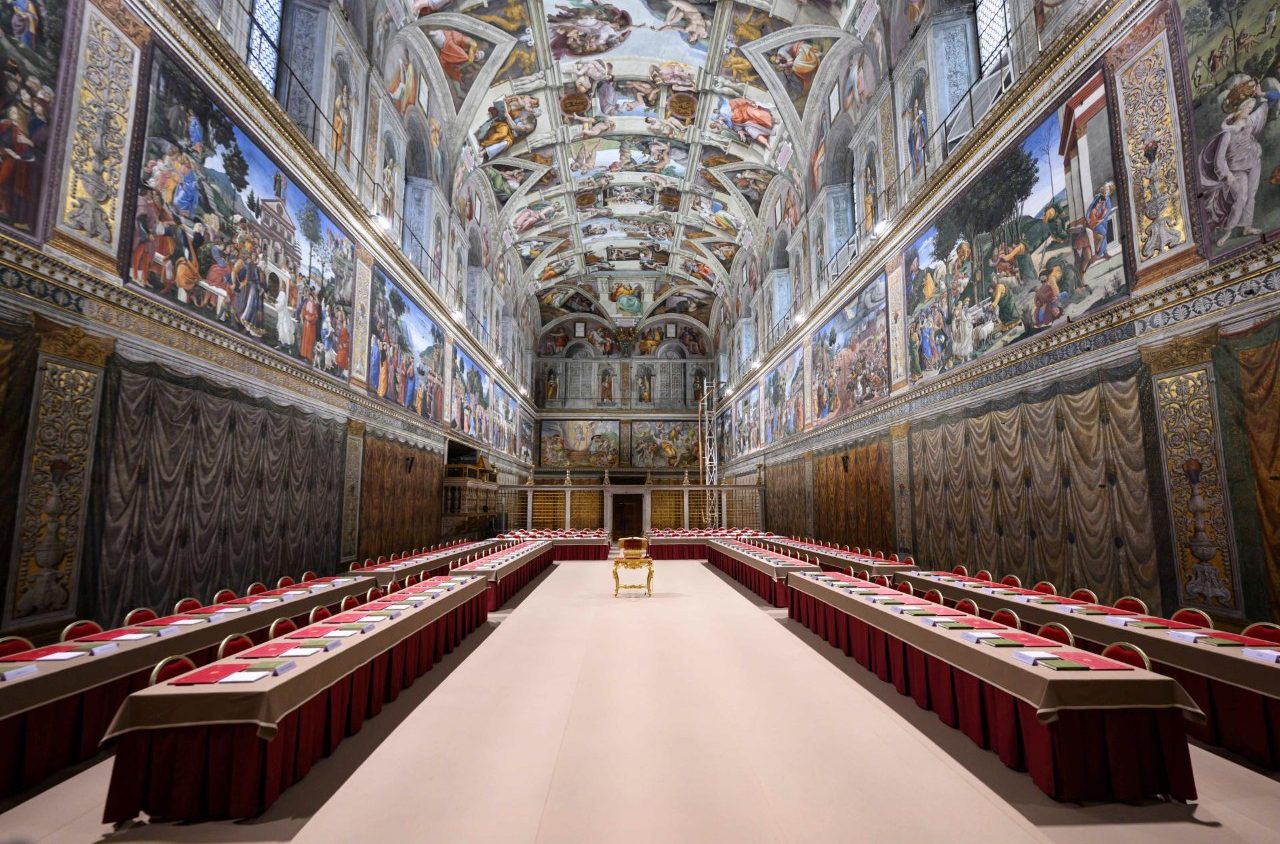Miles Pattenden is an historian and author of the book, Electing the Pope in Early Modern Italy, 1450-1700. His areas of expertise include the history of Catholicism, papal elections and LGBTQ history. He teaches at Oxford University. Outreach interviewed him in Rome, where he is providing commentary on the conclave. He was interviewed on the America Media podcast Jesuitical last year.
Michael O’Loughlin: How would you describe the progress for LGBTQ Catholics under Pope Francis?
Miles Pattenden: Francis’ papacy was one of cautious progress for LGBTQ Catholics. There was a noticeable difference in tone, with the pope emphasising commonalities amongst all Catholics and the need to love unconditionally, despite difference. While Francis did not change Church teaching about same-sex love or desire, he intimated that the church should stop obsessing over its place in the hierarchy of sins. We are all sinners, he said. That’s not what matters. It’s the good we do that counts more.
MO: What, realistically, do you think LGBTQ Catholics could expect from the next pope—the good and the bad?
MP: Realistically, the new pope is not likely to deviate substantially from this line. A progressive pope will hold to it and might want to take his pastoral advice further. However, he will be constrained by the need to bring colleagues with him. At the moment, conservative cardinals would be reluctant to endorse any explicit changes in the status of gay Catholics. The controversy surrounding “Fiducia Supplicans” also cautions of the risks in trying to create clever approaches that try to give everyone something but end up pleasing no one.

On the other hand, a conservative pope, though he might shift the rhetoric and emphasis dramatically, is still likely to emphasise God’s fundamental love for sinners. This message is at the core of contemporary Catholicism—and a pope who took an excessively judgmental line on this one issue would risk charges of hypocrisy for not doing so on others.
MO: How far can a pope go in making the church welcoming to LGBTQ people without the risk of alienating Catholics from more traditional societies?
MP: Francis’ genius in this respect was to argue that all of us are sinners and that we should stop worrying about particular sins in our lives as worse than others. It was a very Jesuitical response to the problem of discussing same-sex desire in that it allowed for a measure of normalization and acceptance while also clearly still categorising same-sex desire as sinful. That was surely designed to keep more traditional Catholics on board.
The new pope can take the same approach but the lines have hardened somewhat since Francis’ famous remark, “who am I to judge?” Conservative clerics now talk of forgiveness as conditional on stopping the sin—i.e. no longer acting on same-sex desire. A pope who endorses that position will likely lose a good number of LGTBQ Catholics for whom it would be a retrograde step.
Expect more ambiguity on the issue much in line with Francis’ approach. However, the new pope may surprise us.
MO: Do you suspect LGBTQ issues are playing a role in the pre-conclave meetings?
MP: We know that LGBTQ issues are playing some role because of the remarks of Cardinal Müller that his colleagues ought to resist the “gay lobby”. At the very least, LGBTQ Catholics are living rent free inside Cardinal Müller’s head. On the other hand, his remarks may well be a sign that conservatives within the Sacred College were indeed preparing to make sexuality a point of discussion in their pre-conclave deliberations.
MO: Regarding the modern relationship between popes and the faithful, do Catholics run the risk of putting too much weight on the papacy? Is this novel in terms of history?
MP: Yes, it’s worth remembering that the pope is not the whole church. He is an important pastoral figure but, historically, Catholicism has always been a varied patchwork of different cultures. Just because the Vatican claims to set standards and rules does not mean that all Catholics have to agree with that. There has certainly always been room in the church for individual conscience.
MO: Any predictions about the future of LGBTQ outreach under the next pope?
I think the future of LGBTQ outreach under the next pope depends a lot on that pope’s identity. What we can say is that the road to LGBTQ acceptance in the church is likely to be a marathon, not a sprint, with many false hopes and turns. But when was being a Christian ever easy?



